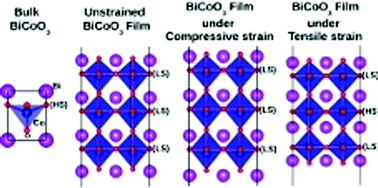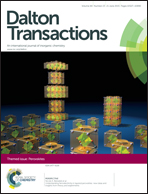Spin-state transition in unstrained & strained ultra-thin BiCoO3 films
Abstract
Using first principles density functional theory (DFT) based calculations supplemented with the Hubbard U term (DFT+U), we theoretically study the structural, electronic and magnetic properties of ultra-thin films of a perovskite compound BiCoO3, constructed along the [001] direction under ambient conditions. Our study shows that significant structural change occurs in thin-film geometry compared to bulk, which modifies the local oxygen coordination around the Co ion from a square pyramidal environment in the bulk phase to an octahedral environment in the thin-film structure. This changes the high-spin state of Co3+ in bulk to the low-spin state of Co3+ ions in the thin-film geometry. The influence of both tensile and compressive strain on the structural and electronic properties of the thin-film is studied. Our study shows a layer selective transition of the Co3+ spin state when subjected to tensile strain, which is found to be driven by the change in the Bi environment. Our theoretical study should motivate the experimental investigation of the thin film of BiCoO3.

- This article is part of the themed collection: Perovskites

 Please wait while we load your content...
Please wait while we load your content...